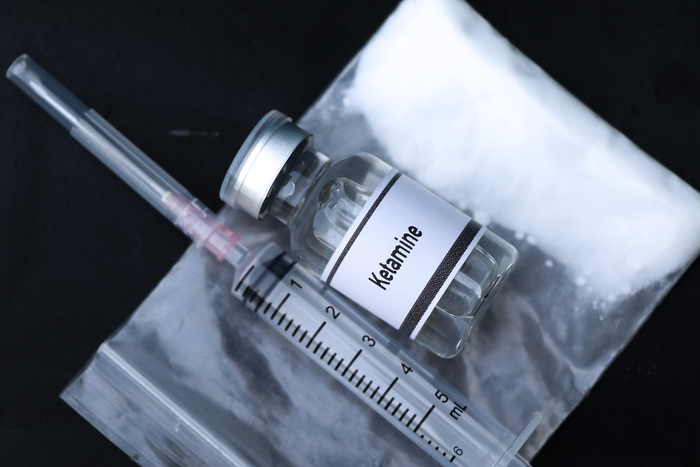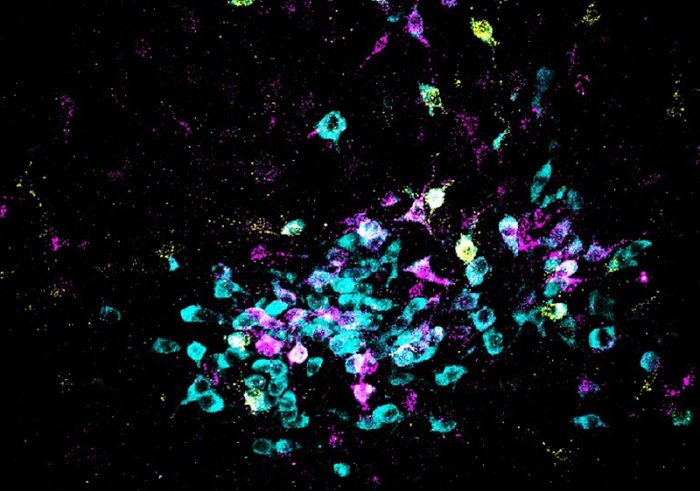By Danica Jefferies -
NBC News
Psychedelics are gaining ground as potential therapies for certain mental disorders and will soon be able to be prescribed by doctors in some states.
As clinical trials of psychedelics continue and legalization efforts gain traction, schools are stepping up their efforts to train therapists and professionals who will administer them.
Psychedelic therapy is not as simple as filling a prescription and taking a pill at home.
In contrast, the administration of psychedelics - such as psilocybin, the compound found in
magic mushrooms
, among others - can be a day-long experience, in which the patient is constantly monitored by qualified professionals.
[FDA changes the label of Plan B emergency contraceptive pill to specify that it does not cause abortions]
Janis Phelps is at the forefront of training these professionals.
A clinical psychologist, she founded and directs America's first accredited psychedelic therapy training program at the California Institute of Integrative Studies (CIIS).
This San Francisco university opened its doors in 1968 and offers courses in psychology, counseling, spirituality, and oriental medicine.
CIIS has trained some 800 students in the psychedelic program since 2016. And with the growing receptivity to psychedelics, more practitioners are seeking instruction.
The program tripled in size after expanding to add a training site in Boston last year.
Phelps estimates that at least 8,000 newly trained therapists will be needed in the next decade.
Mental health is the leading cause of death after childbirth, according to a study
Dec 21, 202203:32
“We decided that we needed to train so many therapists, and there are so few people on the planet who know how to use this effectively, that we started training people before it was even legal to use it, unless you were in a research study. Phelps explained.
[U.S. life expectancy drops to 76.4 years and plunges to 1996 levels due to coronavirus and opioid epidemic]
The psychedelic therapy program involves 150 hours of instruction and several face-to-face training sessions.
Many students are licensed therapists, psychiatrists, and physicians.
Social workers, nutritionists, ordained clergy, and people with other non-medical occupations may also enroll.
According to Phelps, universities like the CIIS teach the methods used in clinical trials to administer psychedelics and monitor participants, protocols approved by the Food and Drug Administration (FDA, for its acronym in English).
In addition to monitoring patients during their journey for any safety concerns, students are also taught to support and validate the emotions that come up during the experience, rather than trying to direct the patient experience themselves, explains Dr. Anne St. Goar, a former primary care physician who was one of the first CIIS credentialed practitioners and now directs the Boston training center.
Unlike talk therapy, patients are encouraged to process their thoughts quietly, while the therapist watches.
When necessary or requested, the therapist takes a more active role by talking to his patient, reassuring him, or shaking hands with his consent.
[CDC Warns of Increase in Serious Strep A Infections Among Children]
One drawback, however, is that outside of approved use in clinical trials, psychedelics remain federally illegal.
That means CIIS students receive training on how to facilitate safe psychedelic sessions without the drugs in hand.
In the absence of psychedelics, CIIS students are taught so-called Holotropic Breathwork, a breathing exercise developed by a psychiatrist in the 1970s that, according to CIIS graduate Dr. Yvan Beaussant, a palliative care physician at Harvard's Dana-Farber Cancer Institute, "involves music and breathing techniques as a means of inducing a psychedelic-like state."
A 2018 review published in Frontiers in Human Neuroscience hypothesized that breathwork might alter activity in the same brain network associated with sleep, meditation, and psychedelics.
Beginning in January, CIIS graduates will be able to apply to practice in Oregon, the first state to legalize supervised psilocybin sessions.
Facilitators must complete an approved training program, such as that offered by CIIS, pass an exam, and pay license fees.
And state-authorized centers will end up serving as experimental training ground for future students.
Take care of your spine!
Make sure you have good posture when using electronic devices
Dec 20, 202204:36
Oregon officials hope the state "shows that we can do this safely and really help people with their healing and wellness, and promote more options for people who want a different option," said Angela Allbee, section director from Oregon Psilocybin Services.
So why the growing interest in the use of psychedelics for mental health?
The federal government has considered psychedelics drugs of abuse "with no currently accepted medical use" for half a century.
But in the 1950s, psychedelics caught the attention of the medical world.
Early research suggested that some hallucinogens, in the right setting, could increase empathy in therapeutic work and were effective in treating various intractable mental illnesses, including alcoholism.
[These are the warning signs of frostbite in some part of the body]
Studies were discontinued in the 1970s, when psychedelics gained a reputation as dangerous recreational drugs.
But scientists at Johns Hopkins University and New York University reinvestigated its medical potential in the late 2000s, sparking a renaissance in psychedelic research.
In 2017, the FDA had designated MDMA - also known as ecstasy and
molly
- as a "breakthrough therapy" for its potential to treat post-traumatic stress disorder (PTSD) more effectively than existing options. .
Of the 12 million adults in the United States who experience PTSD in any given year, five in 10 respond to talk therapy and an estimated four in 10 achieve remission with medication alone, according to the Department of Veterans Affairs at USA.
Authorities warn of the risk of 'water beads' among babies and children
Dec 23, 202202:45
A clinical trial conducted by the Multidisciplinary Association for Psychedelic Studies, a nonprofit organization that raises funds for psychedelic research, found that MDMA talk therapy was twice as effective in treating PTSD as talk therapy alone.
[Avoid being a victim of colon cancer by making these simple changes to your diet]
The group finished collecting data for its second phase 3 trial - an advanced phase of testing the drug that compares it against existing treatments - in November.
MAPS is expected to submit its data to the FDA for possible approval in 2023.
Other clinical trials have discovered therapeutic uses for another psychedelic, psilocybin.
A recent study from New York University's Langone Center for Psychedelic Medicine found that two doses of psilocybin, combined with therapy, helped reduce alcohol consumption for eight months in people with alcohol use disorder.
Another study found that psilocybin helped cancer patients feel less distress about their illness.
A large clinical trial will start later this month to study whether psilocybin can treat depression when other strategies have failed.
Turn on, tune in, drop out?
Treatment with psychedelic drugs is not as simple as giving the patient a pill to take at home, and it is not for everyone.
Psychedelics can induce profound visual and sensory distortions, as well as emotionally challenging experiences for patients.
Harmful interactions can also occur when the user takes certain drugs, so patients in clinical trials are screened before they start.
[This grandmother managed to lose 116 pounds of overweight. She can now carry her grandchildren on her lap]
Half a dozen psychedelic-trained therapists who spoke to Noticias Telemundo's sister network NBC News said the way a trip unfolds largely depends on the “setting and setting”: the mindset with which the patient enters the treatment and the physical environment in which it is located.
So during the drug session, patients lie down and don sunglasses and headphones in a space designed to look more like a cozy den than a hospital room.
Family distancing: when it's time to get away from toxic relatives for mental health
Dec 23, 202203:02
A session with MDMA or psilocybin can last up to eight hours, during which the patient can revisit events and emotions with the support of the therapists.
In clinical trials, therapists also work with participants for a few sessions before taking the drug and several after to process the experience.
According to Beaussant, of the Dana-Farber Cancer Institute, which is investigating psilocybin to alleviate end-of-life anxiety, "the experience strangely resonates in a very unique and meaningful way for most people."
"Typically, people are better able to communicate areas of their psyche that feel unresolved and to process trauma or grief," she noted.
A long journey ahead
As the largest psilocybin clinical trial to date is set to begin this month, several states have tried to relax restrictions around this particular substance.
Oregon voters approved a measure legalizing supervised adult use of psilocybin in 2020. And in November, Colorado became the second state to do so.
But much of the fine print about how and which patients will be able to access psychedelic therapy and for which conditions will be decided by the FDA.
[Online Weight Loss Companies Offer Access to New Drugs, But Do They Provide Good Medical Care?]
A May letter from the US Department of Health and Human Services indicated that the Biden administration is considering creating a federal task force to address the complexities of psychedelic drug approval.
And state groups in Oregon and Colorado are tasked with navigating the details of licensing, dosing and other protocols.
Mental health is the leading cause of death after childbirth, according to a study
Dec 21, 202203:32
Kevin Franciotti, a licensed addiction counselor in Denver who is trained in the off-label use of ketamine for psychotherapy, said the growing demand for psychedelic therapies is a double-edged sword.
“Patients are going to be very excited about this and suddenly very disappointed and frustrated that there may be a substantial lack of qualified professionals outside of the big cities,” he added.
Franciotti supported Colorado's psilocybin legalization measure, telling NBC News it was the state's opportunity to provide its residents with alternative treatment options and challenge existing drug policy.
[Bad breath? Research Reveals Which Foods Can Help You]
With renewed attention to psychedelics in medicine, some mental health professionals are wondering how drug regulations, which continue to make psychedelics federally illegal, affect research.
“There are a lot of psychedelics out there and no one is researching them” due to federal restrictions, according to Dr. Franklin King IV, an emergency psychiatrist and director of training at the Center for the Neuroscience of Psychedelics at Massachusetts General Hospital.
"It's difficult to study and get FDA approval for drugs with limited safety data, so the hurdles are high, even for psilocybin," he explained.
"Legalization is repeatedly the biggest hurdle in all psychedelic research," King said, adding that it can often be easier to get funding to study other psychoactive drugs that come with known harms, such as opioids, than it is to get funding for psychedelics.
“Psychedelics are not going to erase or replace other treatments we have, but they offer enormous utility and are in great demand,” she said.


/cloudfront-eu-central-1.images.arcpublishing.com/prisa/EBEIOK2DHMJJ3FFIRAJKKWNJ4Y.jpg)






